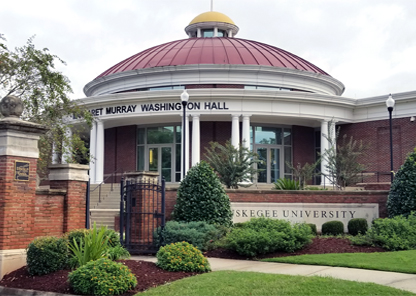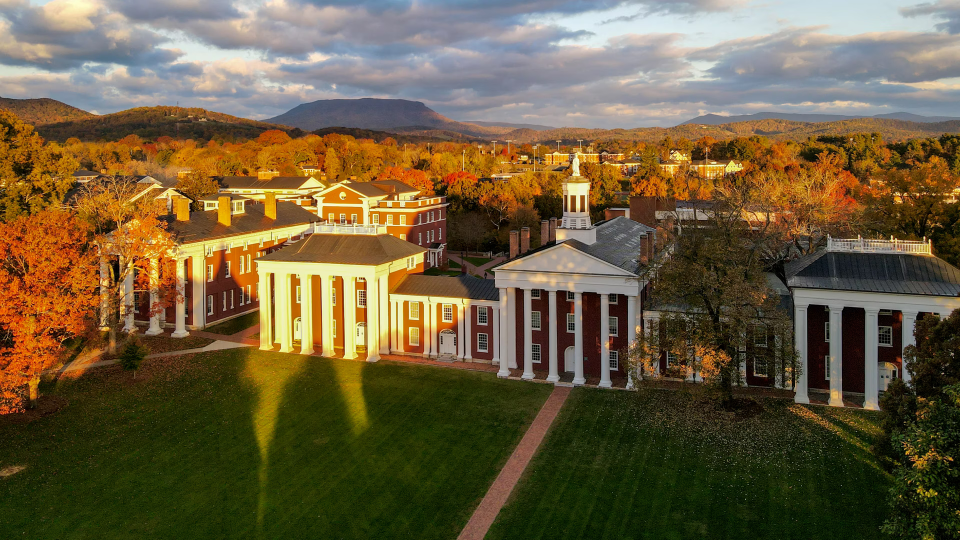Investigative reporters at the New York Times–Eric Lipton, Theodore Schleifer, and Zoltan-Youngs, with assistance from Maggie Haberman– were watching the busy scene at Mar-a-Lago during the brief period when Trump announced draconian tariffs on other economies (but not Russia, North Korea, Belarus or Cuba), but before his decision to postpone the tariffs for 90 days. Trump demonstrated that he could rattle the global economy with a statement, then shift gears a few days later. What fun he must have had! He knew he could crater the stock markets and he knew that he could make it soar.
In between times, Mar-a-Lago was enriching Trump and his PACs.
The financial market meltdown was underway when President Trump boarded Air Force One on his way to Florida on Thursday for a doubleheader of sorts: a Saudi-backed golf tournament at his family’s Miami resort and a weekend of fund-raisers attracting hundreds of donors to his Palm Beach club.
It was a fresh reminder that in his second term, Mr. Trump has continued to find ways to drive business to his family-owned real-estate ventures, a practice he has sustained even when his work in Washington has caused worldwide financial turmoil.
The Trump family monetization weekend started Thursday night, as crowds began to form at both the Trump National Doral resort near Miami International Airport, and separately at his Mar-a-Lago resort 70 miles up the coast.
Mr. Trump landed on the edge of one of the golf courses in a military helicopter — just in time for a dinner at Doral. The next day, LIV Golf, the breakaway professional league backed by Saudi Arabia’s sovereign wealth fund, was scheduled to hold a tournament at the course for the fourth time.
On Thursday at Mar-a-Lago, hundreds of guests gathered for the American Patriots Gala, a conservative fund-raiser that featured Homeland Security Secretary Kristi Noem and President Javier Milei of Argentina, who told his supporters back home that he was hoping to catch up with Mr. Trump while there, seemingly unaware that Mr. Trump was double-booked at two of his family properties that night.
And that was just the weekend’s lead-up.
Mr. Trump ordered a new set of global tariffson Wednesday from the White House using his trademark Sharpie pen, a version of which is on sale at Mar-a-Lago for $3.
The announcement set off one of the largest market crashes in American history, erasing $5 trillion in market value from companies in the S&P 500 in just two days. Mr. Trump has said his policy would reverse what he calls unfair trade practices, and that eventually the “markets are going to boom.”
On Friday, as markets continued to tumble, thousands of golf fans visited Doral, as did Eric Trump, Mr. Trump’s son, and Yasir Al-Rumayyan, the governor of Saudi Arabia’s $925 billion sovereign wealth fund. Mr. Al-Rumayyan is also the chairman of LIV Golf, and was there to see its stars compete.
“It is a nice club,” Mr. Al-Rumayyan said as he walked around the golf course watching the players tee off.
LIV Golf — a venture intended to lift the Saudi profile worldwide even as it has burned through hundreds of millions of dollars of state funds — is styled as a daylong party, with club music pumping out of speakers lining tournament courses and machines dispensing wine and large beers. On Friday, fans watched a bit of golf and danced on the edges of the course. Others in MAGA hats walked around smoking cigars.
In short, the economic turbulence seemed far away.
“You are all looking a little too stiff!” said Matt Rogers, a LIV Golf announcer, as he yelled into a microphone, blasting his message across the greens as the first group of golfers on Friday prepared to play with dance music blaring in the background. “You need to turn this up! This is LIV Golf.”
Every room at the 643-room Trump Doral, including the $13,000-a-night presidential suite, was sold out through the weekend. Not a seat could be found at the BLT Prime steakhouse bar, where a porterhouse steak cost $130.
“This is the perfect venue,” Eric Trump said as he strolled the golf course Friday.
He had driven his father in a golf cart from the military helicopter to the resort dinner the day before, as the festivities over the big moneymaking weekend were getting underway.
The president spent much of Friday at yet another Trump family venue, Trump International Golf Club, not far from Mar-a-Lago, sending out social media messages during the day, including, “THIS IS A GREAT TIME TO GET RICH, RICHER THAN EVER BEFORE.” [Had he already decided to pause the tariffs?]
By Friday night, the center of attention had shifted back to Mar-a-Lago, as Mr. Trump held another in a series of $1 million-a-head dinners at his private club in Palm Beach.
Since he was elected in November, Mr. Trump has hosted at least four of the fund-raisers, including one in December, two in March and the one Friday night, with a fifth planned for April 24.
The fund-raisers unfold in similar ways, according to people who have attended them.
Roughly 20 people gather around a candlelit table with big white flowers in the club’s “White and Gold Room” after a photo session. Mr. Trump speaks, then listens to the guests discuss their businesses, one by one. In just an hour or two, he can raise as much as $20 million — a great return on his time investment, associates say.
Attendees at some of the post-election dinners at Mar-a-Lago hosted by MAGA Inc., one of Mr. Trump’s fund-raising political action committees, have included the casino owner Miriam Adelson, the sugar magnate Pepe Fanjul and James Taiclet, the chief executive of Lockheed Martin, the world’s largest military contractor, along with representatives from the cryptocurrency and energy industries.
On Friday, Ronald S. Lauder, the cosmetics heir, and Steve Wynn, the former casino executive, both billionaires, were among the guests at the Mar-a-Lago fund-raiser, according to two people briefed on the matter. They spoke on condition of anonymity because they were not authorized to discuss the event.
The dinners have been just the start. Mar-a-Lago remains a popular site for Republicancandidates to host their own fund-raisers, Federal Election Commission records show. It is not clear to some Republicans why Mr. Trump has been raising money so aggressively, according to eight people involved in conservative fund-raising who have kept track of his efforts. Never before has a president ineligible for re-election vacuumed up so much money for a super PAC.
Some of Mr. Trump’s associates believe it is prudent to fund-raise when the money is available, as corporate interests and others seek to get access to the president or make amends for perceived slights, people close to him acknowledge.
The packed agendas at the two Trump venues recalled the constant buzz and spending by lobbyists, members of Congress and foreign leaders at Trump International Hotel in Washington before the Trump family sold its lease after Mr. Trump’s first term.
In addition to the Saudi sovereign wealth fund, top sponsors of the Doral golf tournament included Aramco, the Saudi oil company; Riyadh Air, the airline owned by the sovereign wealth fund; and TikTok, the Chinese-owned social media company whose fate Mr. Trump is helping to decide, according to a large billboard outside one of the event’s party tents.
Mr. Trump’s merchandise shops — there are at least three of them at Doral — were also doing swift business, selling everything from a $550 Trump-branded crystal-studded purse to $18 Doral-branded paperweights made in China. The store clerk said that he did not know if new tariffs on imported products would mean price increases.
Fans in the crowd said that they had traveled from as far as South Africa to attend the event. Some purchased special tickets that cost as much as $1,400 to enter exclusive party areas with free drinks and food — tickets that were sold out as of Saturday.
In interviews, tournament attendees and others said that they did not mind the disconnect between the Wall Street meltdown and the events at the Trump properties.
“The sky is falling every day,” said Mike Atwell, a Key Largo, Fla., restaurant owner who was attending the LIV event with his wife enjoying lunch and drinks. “When you are happy, you drink. When you are sad, you drink. It all works out.”
Tyrell Davis, a 39-year-old entrepreneur spending Saturday afternoon in Palm Beach, said that he admired Mr. Trump for focusing on his own businesses while also implementing tariffs that he believed would benefit Americans.
Mr. Davis said that the United States had given away money to other countries for years while not investing in American cities, and that it only made sense Mr. Trump would continue to bolster his own businesses while in office.
“It’s all about business and money,” Mr. Davis said. “That’s what it’s all about. America is a business. It’s a corporation.”
On Saturday, as the tournament continued at Doral, Mr. Trump showed up at yet another family golf course, in Jupiter, Fla., which is holding its own, more modest tournament.
Good news was announced by the White House staff: “The president won his second round matchup of the senior club championship today in Jupiter, Fla., and advances to the championship round on Sunday.” Reporters and photographers were prohibited from watching him play, and were held down the street at a coffee shop.
As Mr. Trump returned to Mar-a-Lago, one of his political committees sent out an offer to his followers: They could buy a signed replica of his executive order changing the name of the Gulf of Mexico to the Gulf of America. The minimum contribution was $50. “I want you to have a PIECE OF HISTORY in your home,” Mr. Trump said in the solicitation.
The White House then announced that there would be no more public events on Saturday.









